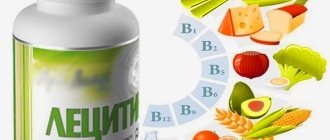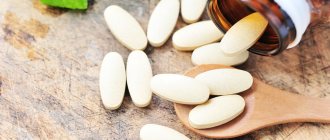What is lecithin?
Lecithin is not one substance, but a mixture of compounds, mainly of a fatty nature. The most important of these are phospholipids. They are represented graphically as a head with a tail.
The "tail" is the fatty acids and the "head" is the glycerol, the phosphorus group and the attached compound, which is the most important in the entire phospholipid because it is largely responsible for its health functions. This may be, among others, choline (phosphatidylcholine), inositol (phosphatidylinositol) or serine (phosphatidylserine). In addition to phospholipids, lecithin also contains triglycerides, carbohydrates, glycolipids and water.
It was first isolated in 1846 by Theodore Nicholas Gobley from egg yolk. The name comes from the Greek word lekithos, which means egg yolk. Since then, it has been studied which products contain lecithin, its healing properties and methods of use are described.
What is it for?
This substance has many functions:
- it is the building block of every cell in the body, it is part of cell membranes,
- is an element that builds brain tissue and myelin sheaths of nervous system cells,
- stimulates the nervous system, supports concentration and attention processes,
- participates in metabolic processes,
- is a protective barrier for the walls of the stomach,
- protects the liver
- improves the absorption of fat-soluble vitamins;
- participates in cholesterol metabolism and increases the efficiency of blood circulation,
- accelerates tissue regeneration after training,
- slows down aging.
Helping the body fight disease
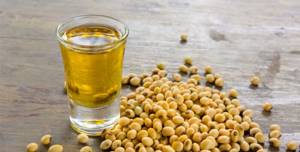
Lecithin is found in every cell of the human body. He is entrusted with quite important responsibilities. Lecithin contains the most amount of lecithin (as a percentage of organ weight):
- in the liver - 65%;
- in brain cells - 30%;
- in nerve tissues - 17%.
Lecithin is found in the adrenal glands, heart and other systems and organs. The immune and endocrine, reproductive and digestive systems use lecithin every minute in order to build their own cells and at the same time function well.
Memory and concentration
Lecithin is perhaps most associated with supporting mental performance and learning processes. Recommended for people working mentally, preparing for exams, and older people whose memory deteriorates with age of the nervous system.
Research shows that people who take supplements with this substance experience improvements in their thinking abilities and ability to remember information. However, their systematic adoption is necessary - from a month to 3-4 months.
A few doses taken from time to time will not make the brain function more efficiently. Lecithin is used to improve the health and quality of life of people suffering from Alzheimer's disease and senile dementia.
Cardiovascular Benefits

This compound is involved in the metabolism of fats and cholesterol. Due to the presence of polyunsaturated fatty acids in it, it binds cholesterol, facilitates its transport and accelerates the removal of excess from the body.
It also has an emulsifying effect - breaking down fats and cholesterol from food into small molecules, which limits their attachment to platelets and blood vessel walls. All this prevents the formation of atherosclerotic deposits and coronary blood clots, which lead to cardiovascular diseases that are dangerous to health.
Lecithin is known to reduce levels of “bad” LDL cholesterol and triglycerides. Some sources point to its ability to raise HDL cholesterol, a fraction of which has been linked to health benefits.
Liver Support
Supplements with it have a positive effect on liver detoxification and regeneration. This limits the adverse effects of alcohol, medications and other substances that burden this organ.
It accelerates its regeneration because it has a stabilizing effect on liver cell membranes. Lecithin has been shown to have a beneficial effect on steatosis, fibrosis and cirrhosis of the liver in alcoholics.
It inhibits the accumulation of fats in the liver, thereby helping to restore its normal functions. Responsible for dissolving cholesterol in bile, thereby preventing the formation of gallstones.
Helping the body fight disease
Lecithin, like choline, improves the condition of people with manic-depressive disorders. Its use reduces the frequency of delusions and hallucinations. The use of drugs with it for mental disorders can be an effective part of treatment.
Lecithin improves the quality of bile after several weeks of consuming foods that contain it. It reduces the viscosity of bile, which naturally prevents the appearance of stones both in the bile ducts and in the gallbladder. The liver produces bile from lecithin. lecithin emulsifies fats in the intestines, promotes their absorption and decomposition, thereby protecting the body from obesity and the appearance of stones. That is, it protects against gallstone diseases.
And renews the functions of immune macrophages and lymphocytes. Lecithin is also included as a component of acetylcholine, which is involved in the transmission of nerve impulses. Thus, what happens:
- improvement of brain activity;
- memory improves;
- Memory processes are directly accelerated.
Lecithin plays a special role in protecting lung tissue. The layer inside human lung tissue is coated with a special substance called sulfactant. Its functions in the body are to protect the alveoli in the lungs from sticking together during exhalation and inhalation. The sulfactant consists of lecithin, proteins, water and fatty acids.
- after suffering from inflammatory diseases such as pneumonia, bronchitis;
- after operations on lung tissue;
- after treatment for pulmonary tuberculosis.
The human body uses and breaks down lecithin every day. Weakened by various stresses, environmental pollution, excessive, poor-quality and unhealthy nutrition, our body cannot independently synthesize the required amount of lecithin. Therefore, its supply must be regularly replenished. Taking into account all of the above, it can be argued that lecithin should become the main component of the additional nutrition of every person.
Application in the food industry

This compound has found application in the food industry because it reduces costs, improves quality and increases the shelf life of finished products. What foods contain lecithin? It is added to bread, cakes, confectionery, chocolate, margarine, mayonnaise, instant foods and even pasta. It is marked with the symbol E322 in the ingredients list. IT improves the consistency of the dough, prolongs the freshness of the bread; prevents food from sticking to the surface of the dishes and gluing; facilitates the formation of water-fat emulsions and allows mixing of immiscible ingredients.
Lecithin, used in the production of chocolate, makes its consistency smoother and more velvety. It improves the organoleptic properties of many foods. It is not considered a harmful food additive, but has only a positive effect on health.
Lecithin: what products to look for it in?

there will be no problems with this. Lecithin is found quite often in food products. If you want to improve your memory and concentration, you should take care of proper nutrition. Let's look at which products contain large amounts of lecithin.
Good sources for it:
- egg yolk,
- liver,
- soybean,
- beans,
- wheat germ,
- sunflower seeds,
- unrefined rapeseed oil (the refining process removes most of the lecithin),
- nuts,
- baker's yeast,
- fish,
- dairy products,
- green vegetables,
- avocado,
- olives.
The largest amount of it is found in egg yolks (1 yolk contains about 2 grams of lecithin).

You should also consider which foods contain lecithin as a dietary supplement. We get it, for example, with bread and chocolate. Daily consumption of 300 g of bread covers the daily requirement for this substance. This may not be the smartest way to deliver this compound into the body, but it shows that it is not difficult to supplement it in the diet.
Rules for eating foods high in lectins
The body should be protected from damage by dangerous proteins. If you are highly sensitive, you can limit your intake of foods high in lectins. Monitoring the reaction from the digestive organs is essential.
Before consuming products that contain significant levels of pesticide poisons, they should be soaked or heat treated at high temperatures. Fermentation and sprouting can also reduce the concentration of lectins.
Before cooking, soak for several hours:
- seeds;
- cereals;
- nuts;
- grains
To reduce the amount of antinutrients, you can sprout:
- grains;
- beans;
- seeds;
- nuts.
Attention! You should not overuse nuts, seeds, or wheat bread.
Daily requirement
The need for lecithin is not indicated in nutritional standards, but most often in publications you can find that the body needs 2-2.5 g of this substance per day for proper functioning.
Some sources indicate a value of 6 g. It is worth remembering that you do not need to supplement with it every day, but only when mental stress increases or concentration decreases. If you know which foods contain lecithin, you can easily meet the body’s needs for this substance with a properly balanced diet.
Consequences of deficiency and excess
Both deficiency and excess of lecithin are dangerous to health. If there is insufficient amount of lecithin in the body, liver dysfunction, decreased concentration and difficulty in learning occur.
Excess caused by too high a dose can cause:
- Diarrhea;
- Nausea;
- Vomiting;
- Bloating;
- Fishy body odor;
- Heart rhythm disturbances.
A side effect of genetically modified lecithin can be menstrual irregularities in women, and even damage to the thyroid gland.
Lecithin Supplements
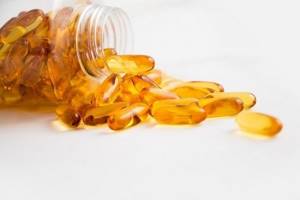
Pharmaceutical shelves bend under the weight of lecithin supplements. You can find them in the form of liquid soluble tablets or capsules. The form of the product itself is not as important as the content of the active substance in it.
When buying a supplement, you need to be very careful and inquisitive, because in pharmacies you can find products that contain 50 mg of lecithin per dose, as well as 1200 mg. You should definitely choose the latter.
Dietary supplements must be used correctly. To do this, it is important to understand the benefits and harms of lecithin. Manufacturers of high-dose supplements with it recommend taking one tablet throughout the day, preferably with meals. In case of increased demand, you can take two tablets per day. The largest single dose product provides just over 6 g of lecithin, and it is best not to exceed the recommended amounts without consulting a doctor.
Daily intake of the substance
Before choosing a dietary supplement and adjusting your diet, it is recommended to find out how much lecithin you need per day.
The following standards have been established:
- For an adult - 5-7 g per day.
- For a child - 1-4 years.
In special cases, the dosage is adjusted according to the doctor’s instructions.
Lecithin is useful for everyone from birth. Babies get nutrients from breast milk. Therefore, both lactating and pregnant women need to include foods rich in phospholipids in their diet.
As we already know, yolks, caviar and liver are components containing lecithin in large quantities.
These also include oils. Of the three extractions, the most useful is sunflower. This product contains a lot of vitamin E. However, it is not recommended to consume a lot of sunflower oil to meet the daily requirement of phospholipids. This component will be beneficial only in small quantities and without heat treatment. It is unlikely that you will want to drink sunflower in its pure form, but dressing salads is the most suitable method of obtaining nutrients from the oil.
One chicken egg yolk contains approximately 2 g of lecithin. How many components are needed to satisfy the requirement for a substance? Just three is enough if you count eggs as the only source.
Will cover the daily requirement and 3 tbsp. l. caviar. One kilogram of beef contains 10 g of the substance, i.e. you will need at least 500 g of meat. The same goes for the liver.
It is not always possible to follow the established diet. Besides, not everyone likes egg products. And not everyone can afford to consume 50 g of caviar daily. It is much easier and cheaper to replenish the supply with the help of drugs.
Most dietary supplements are available in capsules, which makes taking them more convenient. Each tablet contains the daily requirement (or part of it) - this reduces the risk of overdose/lack of nutrients.
How to get the maximum effect from drugs? Choose mainly high-quality products from reliable manufacturers. It is useful to read reviews before purchasing. Follow the dosage specified in the instructions. Consult your doctor.
This will greatly facilitate the task of choosing the TOP 3 additives:
Soybean, sunflower or rapeseed - which one to choose?
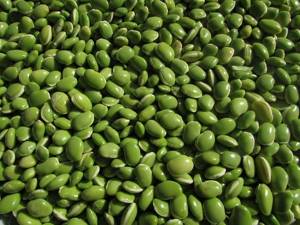
Both soy, sunflower and rapeseed lecithin in liquid form demonstrate a similar composition of phospholipids - its main component used for the production of dietary supplements. So in this respect there are no significant differences between them.
About 30% of the composition of lecithin is made up of oils, in which the proportions of fatty acids depend on the plant from which it was obtained. Sunflower and soybean oils are sources of omega-6 fatty acids, the dietary intake of which is too high relative to omega-3 acids.
However, rapeseed lecithin contains higher amounts of omega-3 acids in better proportion to omega-6. From this it is concluded that rapeseed is more beneficial for health than soy and sunflower, which have similar properties.
Plant and animal sources
The most saturated animal products are chicken eggs. Or rather, yolks. A rich plant source of lecithin is soybean oil.
The egg also contains about 75% harmless fatty acids, a number of vitamins and minerals.
Also, animal food components that contain lecithin include liver, fish oil, breast milk, high-fat fermented milk products, beef and butter.
Plant products include nuts, legumes, salad leaves, bran, vegetable oils, cereals, vegetables, milk. Which products from the listed categories contain lecithin in large quantities, see Table 1.
Important information! Prolonged heat treatment evaporates all the usefulness of food components. Do you want to maintain as much lecithin content in your products as possible? Do not overcook cereals and eggs for more than the allotted time; steam meat and vegetables or bake them in foil.
Phospholipids are not observed in many fruits. Lecithin is found in small quantities in oranges - 15 mg per 100 g of product, which covers the daily requirement of the substance by only 3%.
Find out more about why we need lecithin (video):
Side effects
Lecithin in products is considered safe, does not interact with medications, and generally does not cause side effects.
Taking too many supplements with it can lead to low blood pressure, heart problems and anxiety. Some people may experience nausea, diarrhea, abdominal pain, or a feeling of fullness if the recommended dosage is exceeded several times. Lecithin preparations often contain vitamin E, which is not recommended for blood thinning.
If you are taking this type of medication, it is best to choose one without vitamin E. Liquid supplements may contain alcohol, so be aware of this if you are pregnant, nursing, or driving.
Now you know which foods contain more lecithin and how to properly take dietary supplements with it.
Importance of lecithin for the human body
Regular intake of the substance is necessary:
- The growing body of children, since lecithin is involved in the growth of organs, tissues and mental development;
- For pregnant women, in order to properly form the fetus and prevent a number of diseases of the expectant mother;
- For everyone who is engaged in active physical and mental work, to prevent physical and nervous exhaustion, to maintain brain activity;
- For older people to reduce the risk of developing Alzheimer's disease and slow down the aging process of the body.
Lecithin is produced in the body by the spleen and liver and is part of bile.
However, to maintain normal levels of lecithin, it is necessary to obtain it regularly from food. A deficiency of the substance can affect mental activity, liver function, lead to decreased immunity, disturbances in the functioning of the central nervous system, deterioration of skin condition, and early aging. To prevent such consequences, you need to eat foods that contain a sufficient amount of lecithin.
To date, no clear norms for daily consumption of lecithin have been established. Some nutritionists argue that it should not exceed 600 mg, others are of the opinion that it can go up to 1000-4000 mg.
In any case, you need to rely on the individual characteristics of the body. An excess of the substance can negatively affect the functioning of the digestive tract, so you need to have an idea of its content in foods and regulate their consumption.

